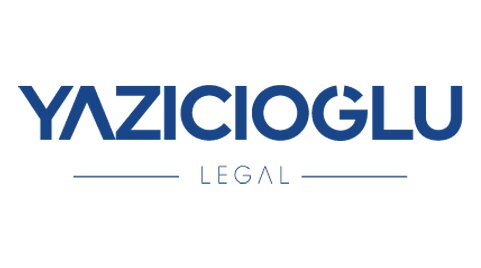Best Space Law Lawyers in Turkey
Share your needs with us, get contacted by law firms.
Free. Takes 2 min.
Or refine your search by selecting a city:
List of the best lawyers in Turkey
About Space Law in Turkey
Space Law in Turkey is an emerging field that regulates the activities related to outer space within the framework of national and international laws. Turkey, being a member of various international space treaties, is committed to the peaceful exploration and use of outer space. Although Turkey currently does not have comprehensive domestic space legislation as some other countries, it has initiated policies to encourage space-related developments through its newly established agency, the Turkish Space Agency (TUA). As Turkey's interest and investment in space-related activities grow, the need for a more structured legal framework becomes evident.
Why You May Need a Lawyer
Legal assistance in Space Law may be required in several scenarios. For businesses entering the space industry, understanding regulatory compliance related to satellite launches and communications is crucial. Intellectual property rights concerning space innovations and technologies also require legal expertise. Furthermore, aerospace and defense companies may need legal counsel on international collaborations and treaties. Individuals and organizations participating in research, development, or educational activities related to space might need guidance on liability matters and contractual agreements with other entities.
Local Laws Overview
While Turkey has not enacted a distinct Space Law, several local legislations intersect with space-related activities. These include laws governing telecommunications, aviation, and technology developments. Turkey is a signatory to international treaties such as the Outer Space Treaty of 1967 and the Rescue Agreement of 1968, which influence its local regulations. The Turkish Space Agency's establishment marked a significant step toward developing a cohesive legal framework to advance Turkey's space ambitions. A key aspect of Turkey's nascent space policy focuses on promoting international cooperation, ensuring compliance with global standards, and fostering innovation in satellite technologies.
Frequently Asked Questions
What is the role of the Turkish Space Agency?
The Turkish Space Agency (TUA) is responsible for developing and coordinating national space policies, programs, and projects. It aims to advance Turkey's capabilities in space technologies and ensure the country's active participation in global space activities.
Is there a specific law governing space activities in Turkey?
As of now, Turkey does not have a specific Space Law. However, relevant aspects of space activities are managed through existing regulations pertaining to aviation, telecommunications, and international treaties.
Can private companies in Turkey launch satellites?
Yes, private companies can launch satellites. However, they must comply with national regulations and international agreements to ensure safety, security, and coordination with governmental bodies.
What international space treaties has Turkey signed?
Turkey is a signatory to major international space treaties such as the Outer Space Treaty, the Rescue Agreement, the Liability Convention, and the Registration Convention.
Do I need a license to operate satellite communication in Turkey?
Yes, operating satellite communications requires obtaining a license and meeting regulatory requirements set by the authorized bodies in Turkey.
How does Turkey address environmental concerns in space activities?
Turkey adheres to international guidelines to mitigate space debris and environmental impacts, ensuring sustainable exploration and use of outer space.
What kind of legal disputes might arise in Space Law?
Legal disputes in Space Law may involve contractual disagreements, intellectual property rights, liability for damages, and regulatory compliance issues.
Are there any educational programs for Space Law in Turkey?
Several Turkish universities offer courses and programs focused on space sciences and technology. While specific Space Law programs might be limited, related fields provide foundational insights.
How does Turkey cooperate internationally in space exploration?
Turkey collaborates with international space organizations and participates in joint research and exploration missions to enhance its technological capabilities and scientific contributions to space exploration.
What are the future prospects of Space Law development in Turkey?
With the growing focus on space development, Turkey may introduce comprehensive space legislation to support national and commercial space endeavors while aligning with international norms.
Additional Resources
For those seeking further information on Space Law in Turkey, it can be beneficial to explore resources provided by the Turkish Space Agency, the Ministry of Transport and Infrastructure, and international organizations such as the United Nations Office for Outer Space Affairs (UNOOSA). Engaging with local law firms specialized in technology and international law may also offer valuable insights.
Next Steps
If you require legal assistance in the field of Space Law, consider reaching out to a legal expert or law firm that specializes in technology and aerospace regulations. Begin by gathering all relevant documents and information pertaining to your case or business needs. Research potential legal advisors with experience in both domestic and international Space Law to ensure comprehensive support in navigating this complex field. As the Turkish government continues to develop its space infrastructure, staying informed of any legal changes and new opportunities can be crucial for your involvement in space-related activities.
Lawzana helps you find the best lawyers and law firms in Turkey through a curated and pre-screened list of qualified legal professionals. Our platform offers rankings and detailed profiles of attorneys and law firms, allowing you to compare based on practice areas, including Space Law, experience, and client feedback.
Each profile includes a description of the firm's areas of practice, client reviews, team members and partners, year of establishment, spoken languages, office locations, contact information, social media presence, and any published articles or resources. Most firms on our platform speak English and are experienced in both local and international legal matters.
Get a quote from top-rated law firms in Turkey — quickly, securely, and without unnecessary hassle.
Disclaimer:
The information provided on this page is for general informational purposes only and does not constitute legal advice. While we strive to ensure the accuracy and relevance of the content, legal information may change over time, and interpretations of the law can vary. You should always consult with a qualified legal professional for advice specific to your situation.
We disclaim all liability for actions taken or not taken based on the content of this page. If you believe any information is incorrect or outdated, please contact us, and we will review and update it where appropriate.
Browse space law law firms by city in Turkey
Refine your search by selecting a city.
















